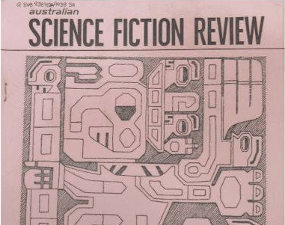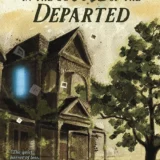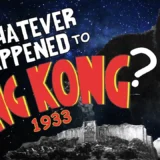Yesterday I sent out a general press release concerning the appointment of Judges to the Gernsback Science Fiction Short Story Contest (you can see a post here).
I received an email from one of the usual press outlets I send such things to, asking to be removed from our PR mailing list.
The name of the venue is unimportant.
What is important is that the request for removal from the list represents fallout from the 2015 Hugo Kerfuffle, otherwise known as Puppygate.
Several thoughts occurred to me almost immediately:
Why would a news outlet deny their readers an opportunity to learn about something that might be of benefit to them?
Why would a website serving the fannish community allow politics to affect their daily operations to such a degree?
Why have (some) fans fallen so deeply into the politics of division that they have seemingly forgotten that it is OK to have differences of opinion on one subject, while continuing to work together on others?
Why has this particular political battle (and it is a battle) become so acrimonious?
Why is fandom allowing pedestrian concerns to displace and overshadow our collective love for the genre?
I don’t have answers, only suppositions, impressions and SWAGs.
To answer that first question: There’s lots of talk (everywhere) about the internet allowing individuals to create an information bubble around themselves, one that filters out anything someone disagrees with or finds distasteful, while at the same time allowing in only that information that reinforces their views. Such could be the case here – the website in question is creating a “safe space” for its readers.
This suggests a presupposition on the part of the filterer – that anything originating with Amazing Stories is automatically judged wrong-thinking, or that the website in general caters to a particular persona-non-grata community. (I still visit the website in question, btw.)
That’s not the case of course. Contributors to Amazing are free to write whatever they wish to without editorial direction. There are no subject guidelines, no political litmus tests, neither for content or for accepting contributors. Editorially, the website has made no bones about its position on the kerfuffle (gaming the Hugos is wrong; the justifications for doing so are largely non-existent; I object to the methodology employed), but any of our contributors, or even non-contributors who want to address the subject, are welcome to take a contrary view if that is their belief. (One such early effort by non-staff to give voice to contrary views was cancelled because we could not agree on terms. The terms were two: to present the case directly without resorting to attacks on contrary positions; to refrain from using undefined catchall words and phrases or language meant to denigrate or insult the opposition.)
Editorially, my position is clear: I speak only for myself and not for any other contributor. And not once have I rejected an article based on a disagreement with the views presented in it. (Which, if you recall, has gotten me into hot water on a couple of occasions.)
Another possible reason for declining press releases is a desire to not add to Amazing’s traffic. A reasonable tactic, I suppose, until one remembers that this was a general press release, one that will be (and has been) carried by numerous sites (among them websites that have far greater traffic than the site in question) and that there are at least 12 other individuals – many of them high-profile – who will be tweeting and Facebooking and blogging from now until the contest concludes.
In other words, the word will get out. Fandom will know about the contest whether any individual website helps it do so or not. The only people that not running the press release will negatively affect are those people whose “go-to” website is the one in question, all of whom will learn about the contest elsewhere. (Unless of course their interaction with fandom is so narrow that the only website they visit is that website. My guess is that such a fan simply does not exist.)
The other questions raised?
I originally believed that most of the acrimony was due to the involvement of fans who had little to no connection to traditional fandom. (Fans who read, play games, watch movies, but generally don’t engage in conventions, fanzines, the community.) I believed that this was sufficient explanation for their behavior, since I found it very hard, almost impossible, to believe that anyone who truly cared about fandom and the community could engage in such behavior. Those exposed to fandom in any meaningful way soon learn that there are ways of going about doing things that are acceptable, and ways that aren’t.
(This does not mean giving up personal beliefs in favor of group think. It does mean having a desire to get along, to ignore disagreements in favor of common goals, of learning the mores, traditions, history and ethics before discarding them. It does not mean that one has to be fannish friends with everyone, nor to support things that are an affront to ones beliefs. It should mean that consideration for the health of the community is given primary consideration.)
I’ve now been disabused of this notion. It is (apparently) possible for long-time fans to feel so very strongly about their (mundane) politics that they are willing to move from the fannish feud stage directly to the burning of the fields and salting of the earth phase without passing go.
This particular battle? I think it inevitable that the modes of mundane politics in the US would have eventually crept into fandom (at least US fandom) – it’s invading every other aspect of life here and in that regard, fandom is nothing special. The time frame and subject are merely circumstantial.
There will be more of the same in future. Its effects on fandom will continue to be greater than is really warranted, until we find a way to get back to “live and let live”, of letting the mundanes play politics while we play with the really important stuff. Like which of two competing panels to attend at the latest convention, or whether or not YA fiction ought to have its own separate Hugo Awards category.
With rare exception, I’m pretty sure that we would all be in agreement that we’d rather not be having this fight. If puppies could be convinced that there is no conspiracy against them and that from now until Campbell’s Twilight they could be assured of a fair shake when it comes to awards; if anti-puppies could be assured that their fellow fans would work within the community to affect change; that all would forever forgo the nastier tactics that have been displayed all too frequently of late.
If we can agree on that, we can eventually find other things to agree on. It would be a start.
Steve Davidson is the publisher of Amazing Stories.
Steve has been a passionate fan of science fiction since the mid-60s, before he even knew what it was called.









